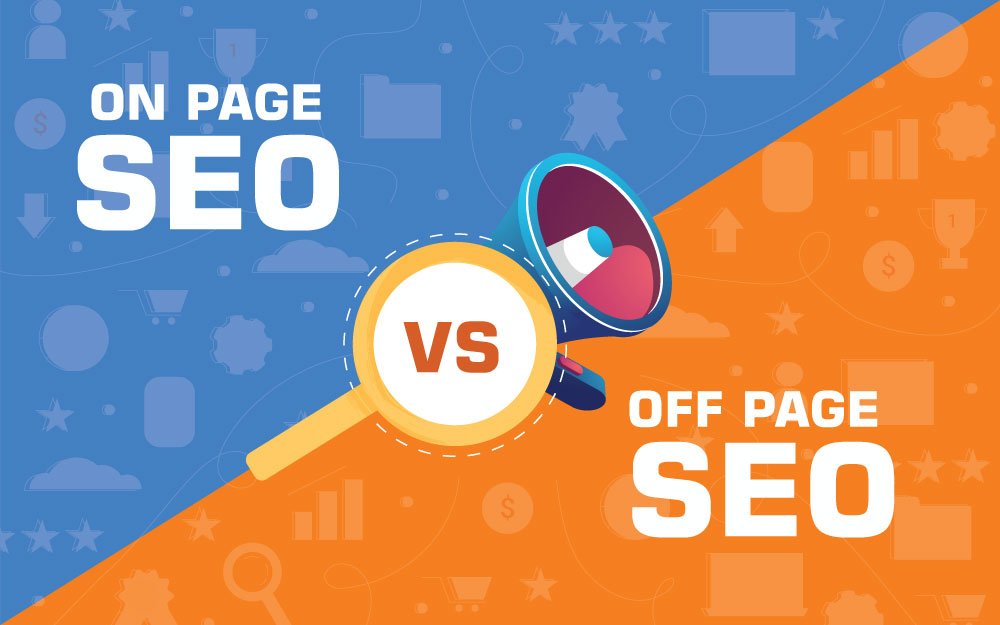Did you know Google controls more than 90% of the global search market? This fact shows how vital it is to grasp Google algorithms for SEO. These algorithms are crucial for search engine optimization, deciding how websites rank on Google. From 2020 to 2022, Google made thousands of changes to improve search results and user experience12.
This guide aims to make the complex world of Google algorithms easier to understand. You'll learn about the key factors that affect your site's visibility. By understanding how Google searches, crawls, indexes, and ranks, you'll get insights for better SEO strategies3. You'll also get tips on technical SEO and content optimization to help you succeed in search engine optimization.
Key Takeaways
- • Google manages over 90% of global search traffic, making SEO crucial for online presence.
- • Understanding ranking factors can significantly enhance your website’s visibility.
- • Algorithms undergo continuous improvement, emphasizing quality, relevance, and user experience.
- • Technical SEO and content optimization are key components of effective SEO strategies.
- • Staying informed about updates is vital for maintaining competitive advantages in search results.
Introduction to Google Algorithms
Google algorithms are like a map for search engines. They decide what content you see based on how relevant and good it is. This affects how visible your content is on Google. Google is the biggest player, with 80% of the market, while Bing and Yahoo have less than 10%4.
Knowing about these algorithms is key for good SEO. They look at over 200 factors to rank content4.
When you post new content, Google's crawlers check it out. They look at things like backlinks and how fast your pages load4. Changes can take hours to months to show up in search results5. But, you can help Google find your site faster by promoting it and submitting a sitemap5.
Google's algorithms keep getting better, with updates happening many times a year4.
Learning about google algorithms can make your content more visible. It can also help you connect better with your audience. This knowledge lets you make your content better, keeping up with SEO changes.
What Are Google Algorithms?
Google algorithms are complex systems made of millions of lines of code. They check, crawl, index, and rank web pages. These algorithms change often to give users the best search results for what they're looking for6.
Every time someone searches, Google's algorithm makes the results personal. It looks at things like where you are, what you've searched for before, and what you like6.
Knowing about search engine optimization (SEO) helps you understand Google's rules. The algorithm looks at things like where keywords are placed and the quality of links6. Good SEO tells Google what your page is about, which can help your ranking. But, don't try to stuff keywords, as that can hurt your ranking6.
User experience is also important. Google cares about how fast your page loads and how well your site works7. The algorithm has over 200 signals that affect how your content is seen and ranked7. Backlinks are also key for better rankings, with more referring domains making your keywords more competitive7.
The Importance of Understanding Google Algorithms for SEO
Knowing how Google algorithms work is key to your SEO plan. With Google handling about 2 trillion searches yearly8, it's vital to understand these systems. This knowledge helps you create content that meets user needs and Google's quality standards.
Google updates its algorithms often, changing search results and keyword rankings9. These updates focus on quality content and user experience. For example, Google values content that is trustworthy and informative, especially in critical areas like health and finance8.
Staying updated with Google's changes helps you adjust your strategies9. The shift towards natural language and understanding user intent is a big change. This ensures your content is not just seen but also valued, which is essential in a competitive online world.
How Google Search Works
It's important to know how Google search works to make your content better. Google uses a step-by-step method that includes crawling, indexing, and ranking. This way, Google can show users the best and most relevant results.
Understanding Crawling, Indexing, and Ranking
First, Google's bots explore the web to find new or updated pages. Most pages aren't submitted by hand but are found by Google's bots10. These bots decide which sites to visit, how often, and how many pages to get from each site10.
After crawling, Google looks at the content of the pages it found. It checks the text, images, and videos. Google also knows how to spot duplicate content and pick the main page10. Not every page Google finds gets added to its database10.
The last step is ranking. Google sorts search results based on how well they match what you're looking for, where you are, and what device you're using11. Google looks at things like backlinks and how good the content seems to users. They keep working on their algorithm to make results better and more relevant12.
Key Google Ranking Factors
Knowing the key google ranking factors can really help your website get seen more. There are many strategies to improve rankings, focusing on on-page strategies and off-page tactics. These methods work together to make your site more authoritative and boost search results.

On-Page SEO Strategies
Good on-page strategies are key for making your site's content better. Google looks at over 200 ranking factors to see if your site is relevant and quality1314. Things like keyword density, meta title tags, and structured headings help a lot with rankings15. Also, longer content tends to rank higher, with top articles averaging about 1,890 words13.
Make sure your site loads fast too. This improves user experience, which is important for Google's Core Web Vitals1314.
Off-Page SEO Methods
Strong off-page tactics are also crucial to build your site's authority. High-quality backlinks are key, making up about 13% of Google's ranking algorithm15. Getting these links through outreach and building niche relationships is important. Social signals and brand reputation also help improve your site's performance, showing how these factors are connected14.
Technical SEO Best Practices
Improving your website's performance and visibility is key. Focus on site accessibility and speed to better user experience and rankings. This is crucial for your site's success.
Ensuring Site Accessibility
Site accessibility is vital for user interaction. To make your site accessible, consider these steps:
- • Use responsive design for all devices.
- • Choose clean, descriptive URLs for better navigation.
- • Make sure title tags and meta descriptions are unique for clarity and SEO16.
- • Start title tags with the main keyword for better ranking16.
Improving Site Speed
Site speed affects user experience and rankings. A slow site can harm your visibility. Here's how to speed up your site:
- • Try lazy loading for images to improve speed by 50% or more16.
- • Use a Content Delivery Network (CDN) for faster content delivery16.
- • Monitor your site's performance with tools like Google Search Console16.
- • Optimize for fast mobile speeds for better rankings16.
Content Optimization for Search Engines
In today's digital world, content optimization is key to boosting your site's search engine visibility. With over 600 million blogs online, the competition is intense. It's essential to create content that stands out and meets user needs17. This means refining elements like keyword usage and making sure your content connects with your audience.
Google's algorithm checks content for keyword relevance to match user searches17. This highlights the need to use relevant keywords naturally in your content. Aim to write articles that grab readers' attention. Organic search drives about 53% of all website traffic18. Engaging content attracts visitors and builds trust with both users and search engines.
To optimize your content, consider these strategies:
- • Choose relevant keywords that match user intent to boost your article's reach.
- • Use SEO tools like Yoast SEO for WordPress or Moz for keyword research and optimization.
- • Focus on readability; clear and concise language keeps readers engaged and signals quality to search engines.
- • Integrate multimedia elements to enhance the user experience without slowing down your site.
The secret to better search engine visibility is using effective content optimization consistently. With Google leading the search market, a strong online presence is crucial for traffic and revenue18. Remember, the aim of content optimization is to offer valuable insights and answers to those searching for them.
User Experience and SEO
Making your site easy to use can really boost its performance. A good site structure is key to this. It helps visitors find what they need fast. Good SEO and user experience together can lead to more people staying on your site and better rankings.
Importance of Mobile Friendliness
Mobile optimization is now a must, as Google favors mobile-friendly sites. Over half of all web traffic comes from mobile devices19. If your site isn't mobile-friendly, you'll lose a lot of visitors. Slow mobile pages can make users leave quickly19.
Role of Site Structure in UX
A good site structure is vital for both user experience and SEO. Research shows 94% of users value website architecture and navigation20. Each page should be reachable in four clicks from the homepage. This makes your site easy to use and keeps users engaged20.

| Factor | Impact on UX | SEO Influence |
|---|---|---|
| Mobile Friendliness | Enhances user retention | Improves rankings on search engines |
| Site Structure | Simplifies navigation | Reduces bounce rates and increases crawl efficiency |
| Page Load Speed | Prevents user frustration | Is a ranking factor for search engines |
| Visual Design | Improves overall user satisfaction | Contributes to positive user interactions |
By focusing on these areas, you can make a site that's both engaging and easy to use. This will please your users and search engines alike212019.
Voice Search Optimization
Voice search is becoming more common. Over 50% of all internet searches are now done by voice22. This shows how important it is to make your website work well for voice searches in your SEO plan22. With over 1 billion voice searches every month, there's a big chance for businesses to get noticed22.
Think about how natural language processing can help in making your content better. Voice searches are often longer and more like conversations, with phrases of 5 words or more22. Use long-tail keywords that sound natural. For example, using questions like “who,” “what,” “where,” and “how” can help meet voice search needs23.
More and more people are getting smart devices. By 2022, 55% of U.S. homes will have a smart speaker22. Knowing how to do local SEO is key since 58% of people use voice search to find local businesses22. Make sure your Google Business Profile is up to date to show up in local voice searches and get more visitors.
Also, since voice search results often come from Google's featured snippets, having short, clear answers is important22. Aim to be in the top one to three search results, as these are often what voice assistants show23.
To optimize for voice search, make your content clear and conversational. You want your visitors to feel like they're talking to your brand. This can really help with engagement and better results.
| Statistic | Detail |
|---|---|
| 50%+ | Internet searches are voice-activated22. |
| 1 Billion | Voice searches conducted each month22. |
| 55% | U.S. households expected to own a smart speaker in 202222. |
| 58% | People using voice search to learn about local businesses22. |
| 40% | U.S. internet users using a voice assistant monthly23. |
| 200 Million | Smart speakers projected in U.S. by 202323. |
Structured Data for SEO
Structured data helps search engines understand your content better. By using schema markup, your site's visibility in search results can improve. This leads to more people clicking on your site24. Sites with structured data, like rich snippets, get more clicks than those without24.
Research shows that sites like Rotten Tomatoes saw a 25% increase in clicks after using structured data25.
Structured data does more than just improve rankings. It makes your site stand out on search results pages. For example, Nestlé saw an 82% increase in clicks for pages that showed up as rich results25.
Platforms of all sizes can benefit from structured data. It's a key part of your SEO strategy, helping search engines provide better user experiences26.
Adding structured data is easy, thanks to plugins that don't require coding skills. It's important to follow Google's Structured Data Guidelines to avoid penalties24. Using schemas like Product and FAQ can also engage users by answering their questions directly26.

Conclusion
Understanding Google algorithms is key for anyone wanting to boost their online presence. This guide has given you vital strategies and insights into SEO's importance. It shows how staying updated with changes affects your website's visibility and rankings27.
By optimizing your site according to Google's rules, you boost your search rankings over time28. This is crucial for keeping your site visible online.
Also, as user behavior changes, focusing on keyword strategy that matches user intent is essential. This improves your content quality and engages your audience better27. Paying attention to user experience, like mobile-friendliness and site speed, boosts SEO and makes your brand look good27.
Being proactive in understanding and adapting to Google algorithm updates keeps your strategies working. This way, you can keep succeeding in search engine visibility28. Embrace the ever-changing world of SEO and adjust your approach to stay relevant in a competitive online world.




